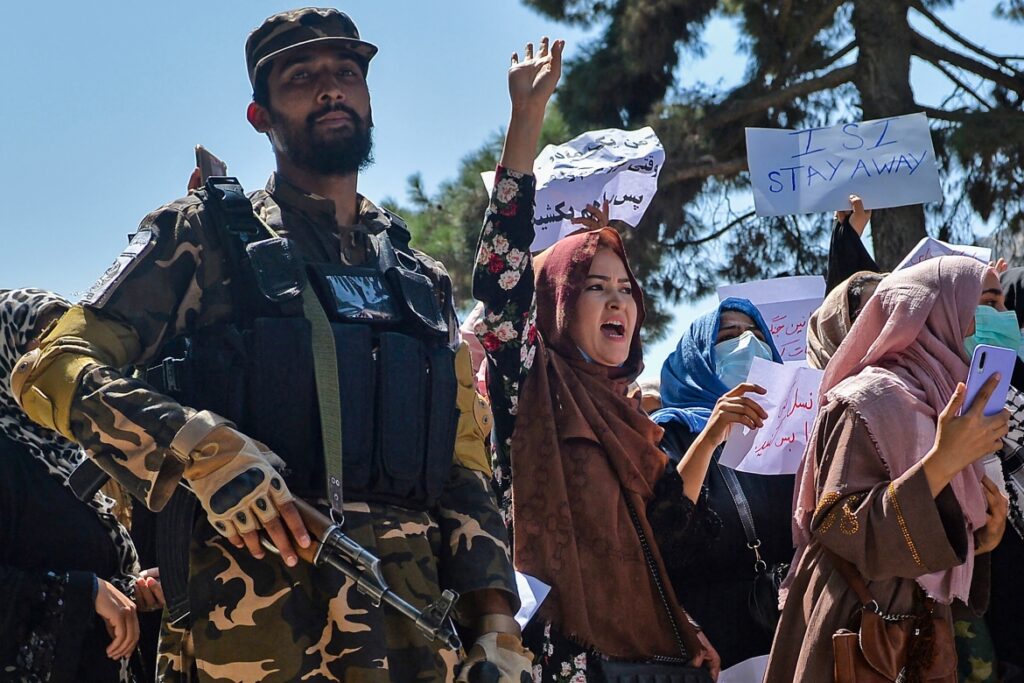Afghanistan’s new Taliban authorities warned Saturday they have the right to crack down on dissent and jail protesters, as concerns grew over the disappearance of two women activists.
Since storming back to power in August amid a hasty withdrawal of US-led foreign forces, Taliban authorities have forcefully dispersed rallies, beaten some Afghan journalists and arrested critics.
This week, women activists said two of their comrades were seized from their homes in the capital after taking part in a demonstration.
The United Nations Assistance Mission in Afghanistan called for the Taliban to “provide information” on the whereabouts of Tamana Zaryabi Paryani and Parwana Ibrahimkhel, reportedly abducted from their homes on Wednesday night.
Taliban government spokesman Zabihullah Mujahid denied any women were being held, but said authorities had the right “to arrest and detain dissidents or those who break the law”.
“Nobody should create turmoil, because it disrupts peace and order,” he told AFP in an interview.
There have been a scattering of small protests demanding women’s rights, which have improved marginally in the patriarchal Muslim nation over the past 20 years.
But the Taliban banned all unsanctioned protests after returning to power.
“If this happened in any other country, such people would be arrested,” Mujahid said. “We are not allowing illegal activities.”
Desperate for international recognition to unlock frozen assets, the Taliban have largely refrained from issuing national policies that provoke outrage abroad.
But provincial officials have issued guidelines and edicts based on local interpretations of Islamic law and Afghan custom that have curbed women’s freedoms.
Girls in most provinces have not been allowed to return to secondary school, public universities are shuttered, and women have been banned from most public sector jobs.
Women must also be accompanied on long journeys by a close male relative, while posters have gone up in Kabul ordering them to cover up — illustrated by the all-covering burqa.
On Friday, two international NGO workers in rural Badghis province said religious police issued a warning that women staff will be shot for not wearing the burqa.
Mujahid, who is also the deputy minister of culture and information, excused the threats and intimidation, saying forces were “very new… and not professional”.
“They haven’t been trained,” he said.
